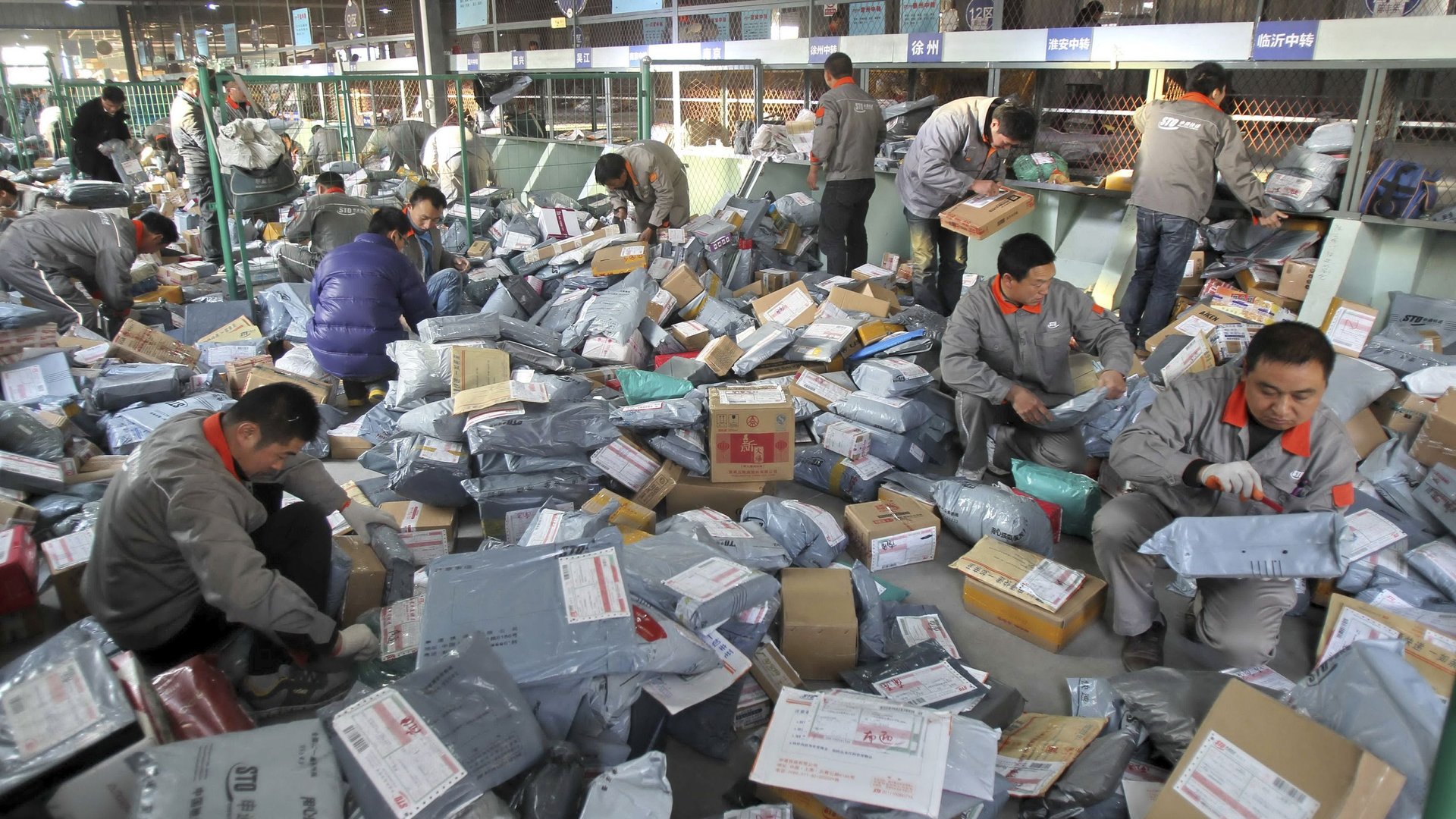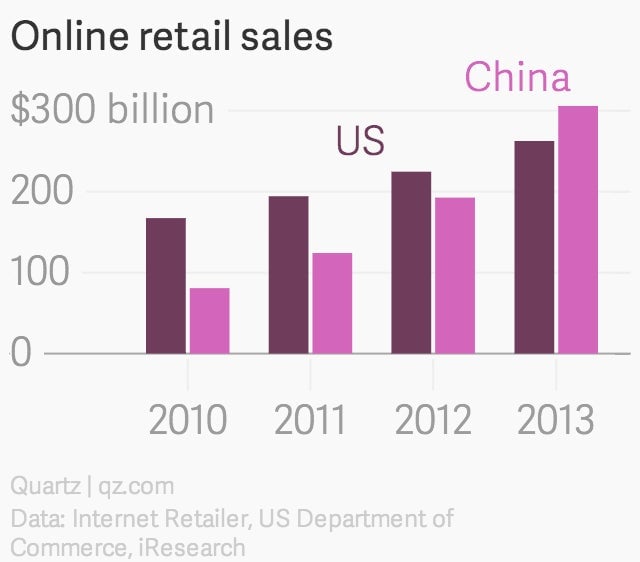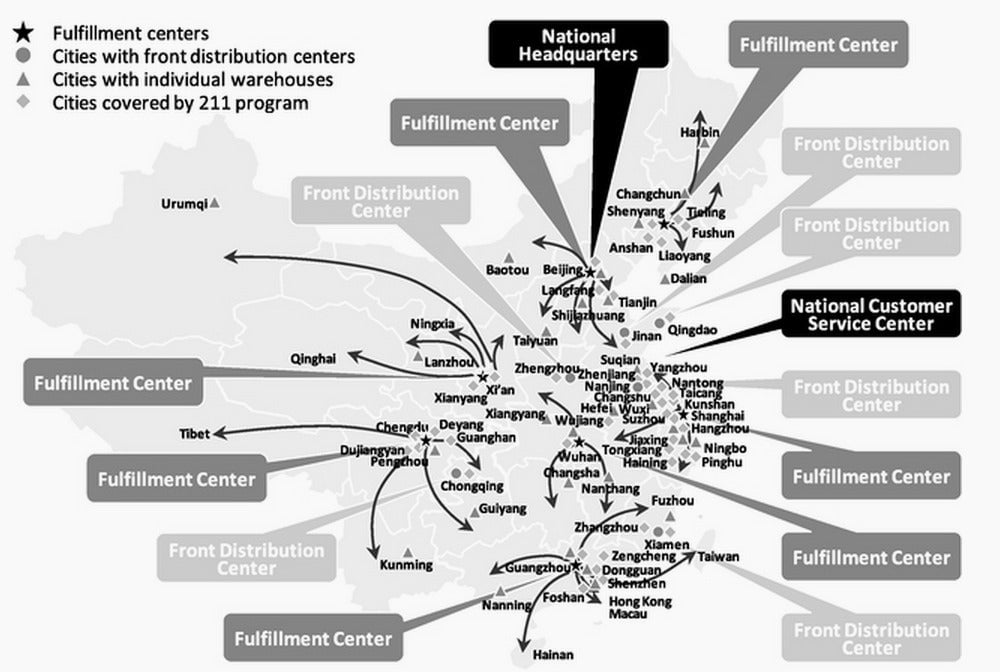The Chinese government may have just done Alibaba a massive favor
Alibaba’s public listing last week means the race is officially on between the e-commerce giant and JD.com, its main competitor, to bring speedy delivery to consumers in China’s smaller cities and rural hinterlands. It’s an expensive challenge. A combination of China’s vastness and its thorny bureaucracy have fragmented its parcel-delivery infrastructure—China now has some 35,000 express delivery companies, reports Reuters—making delivery irrationally cheap in some areas and exorbitant in others.


Alibaba’s public listing last week means the race is officially on between the e-commerce giant and JD.com, its main competitor, to bring speedy delivery to consumers in China’s smaller cities and rural hinterlands. It’s an expensive challenge. A combination of China’s vastness and its thorny bureaucracy have fragmented its parcel-delivery infrastructure—China now has some 35,000 express delivery companies, reports Reuters—making delivery irrationally cheap in some areas and exorbitant in others.
What’s holding back the development of said infrastructure? A lack of capital, for one thing; the Chinese government doesn’t let foreign courier companies like FedEx, DHL and UPS deliver parcels in China.
Until now, that is. The State Council, essentially the Chinese government’s cabinet, says it will “fully liberalize” the domestic parcel delivery market (link in Chinese), opening it up to foreign competitors and encouraging industry mergers and acquisitions. The decision could pump huge sums of investment into China’s infrastructure build-out.

And on the face of it at least, it should benefit Alibaba. Unlike JD.com, which uses a more Amazon-style model of managing warehousing and delivery itself, Alibaba partners with courier firms to guarantee speed and reliability of that critical “last mile” of delivery. Despite their differing models, both companies have already been spending like crazy to construct their delivery networks. But if an influx of foreign cash and competition succeeds in upgrading China’s delivery infrastructure, Alibaba can simply partner with the companies that come out on top, saving its capital for something else.
As for JD.com, one of its big selling points is its ability to guarantee swift delivery. Its phalanxes of tens of thousands of couriers allows it to offer superior service to local companies. At the moment, across huge swaths of China, that’s no mean feat. But if other Chinese merchants and consumers have reliable parcel-delivery alternatives, it could blunt some of JD.com’s competitive edge.

That’s on the face of it. The way it plays out, however, could be very different indeed. For one thing, the Chinese government doesn’t always enforce what it announces. And though foreign players are sure to find the opportunity attractive—China’s parcel-delivery industry is now worth $13 billion, reports Reuters, compared with the US’s $70 billion—competing will be expensive. Not only is the foreign firms’ global expertise and manpower less valuable in China, but domestic competition is formidable. To promise service quality that would justify charging higher prices, foreign companies will have to spend enormously on infrastructure. And as so many have already found out, strategies that work in other markets often don’t apply in China.